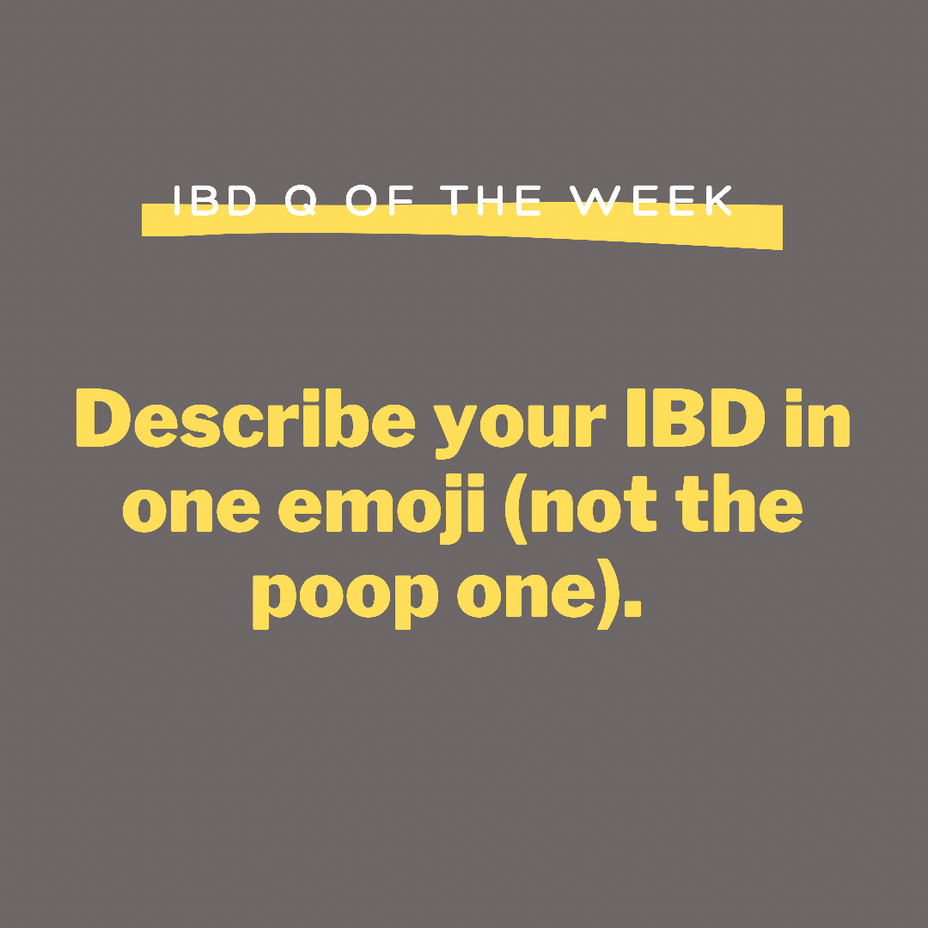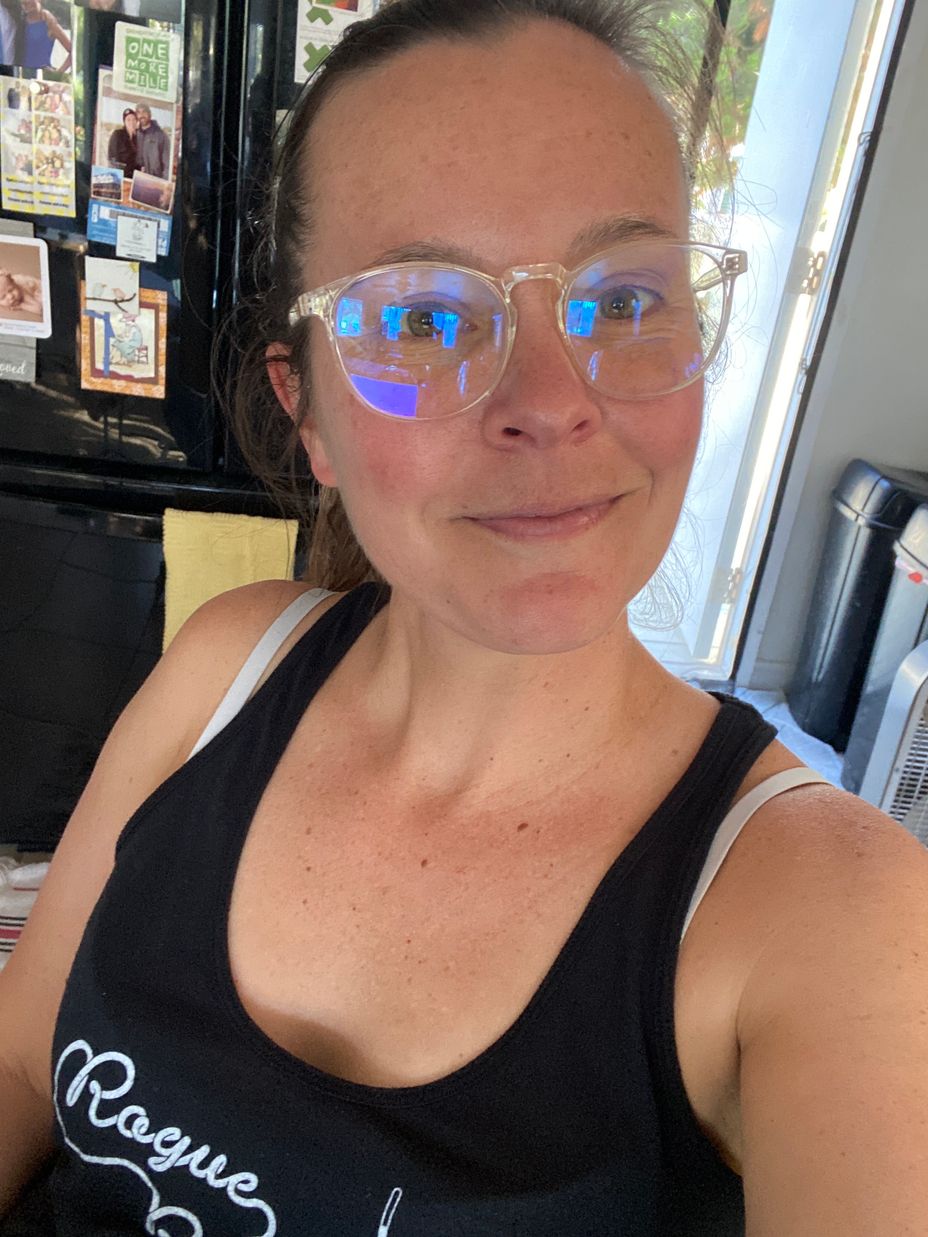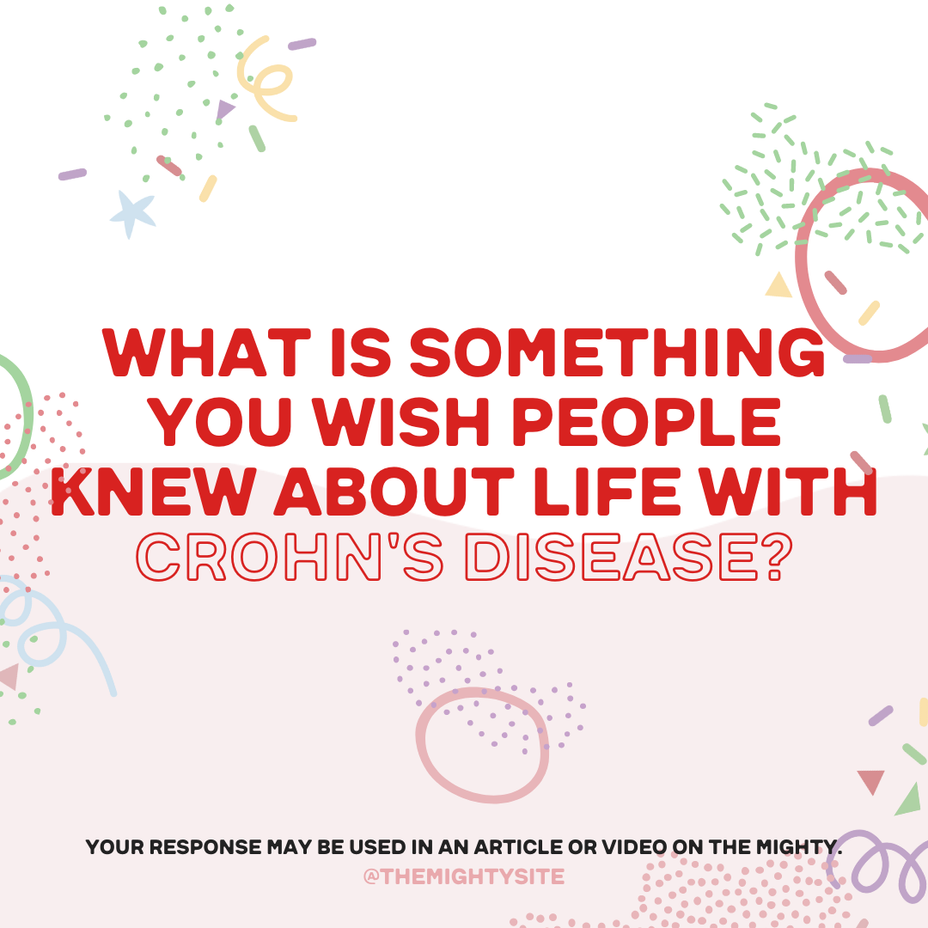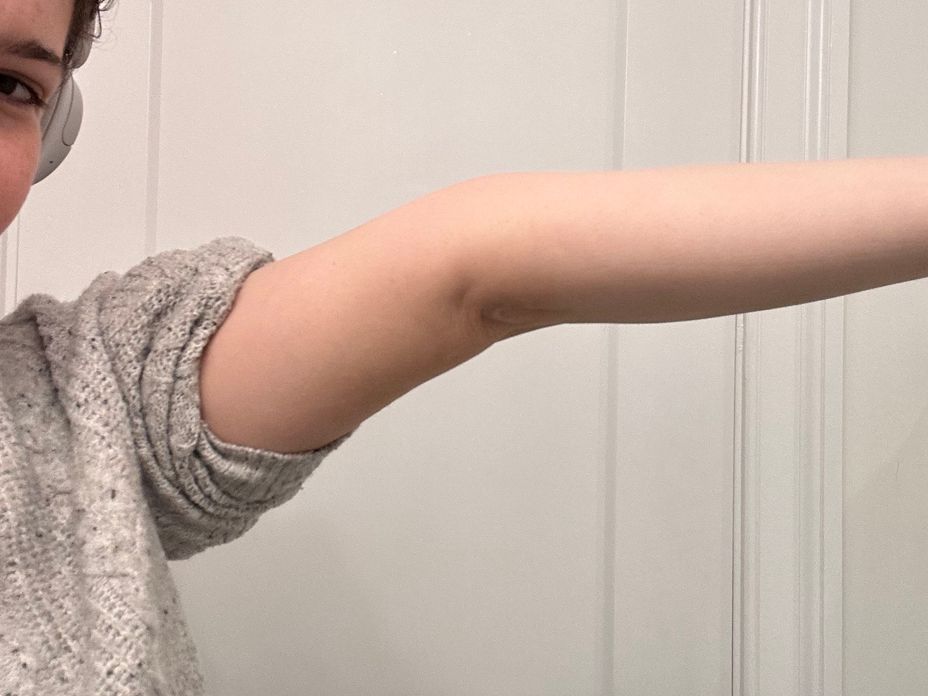Irritable Bowel Syndrome (IBS)
Irritable Bowel Syndrome (IBS)
We're so glad you're here. Scroll down to find some of the Crohn's conversations happening in our community. The more, the merrier—jump in anytime!


10 reasons to join the Crohn’s and Colitis Support Group
1. It’s full of other people with connections to IBD.
2. It’s a safe forum to ask any and all IBD questions.
3. It’s a way to connect with others on the Mighty community.
4. I’m one of the group leaders (living with #UlcerativeColitis ), and I’m pretty cool.
5. We want to normalize talking about poop.
6. We do Q&As with partners like Girls with Guts.
7. It’s a small but “Mighty” community that we want to grow.
8. It’s supportive.
9. Why not?
10. Do it today!
You can search the groups to join. #CrohnsDisease #InflammatoryBowelDiseaseIBD #ChronicIllness #IrritableBowelSyndromeIBS

What is something you wish people knew about living with Crohn's?
What is something you wish people knew about living with Crohn's?
Your response may be used in an article or video on The Mighty.
The Mighty is a safe, supportive community for people living with disabilities and the people who care for them.
My week made my anxiety go into overdrive
Last Friday, in the early hours, my pet bunny passed away. She was with me for eight years. I miss her so much. We rushed her to the emergency vet as she was struggling to breathe. We had to euthanize her because she was living with a congenital heart disease and her heart had swollen and started crushing her lungs. She had adapted slowly over the years and then suddenly she was out of time. I hope she is hopping over the rainbow bridge 💔💗🐰 and joining all my other bunnies there too. I've had pet bunnies my whole life. I really really miss her. It's been so hard to clean out her hutch and her things without her here.
To top it all off I overslept due to not sleeping well (was crying the whole night) and then I was late to work (really late).
Some colleagues had flown up from Cape Town and from Ireland for a workshop and I was late to meet them. Horrible first in person impression....
Then the following week Monday my period started. On top of this at the conference venue they served gluten, sugar and milk at almost every meal. My IBS started flaring from Tuesday onwards...
I was late again twice that week. I'm not proud of that.
Finally on Friday I was really early to the workshop. But this time the conference served peanuts inside their creamed spinach for lunch. Triggering a whole peanut poisoning episode... I left work early in a rush and a panic to get to an EpiPen at home (also not great - as it was the last day of the workshop and we had to say goodbye to our foreign colleagues). Not great for my work performance honestly.
This is why I have a remote job. I can manage my conditions remotely, even when there are many uncontrollable stressors like my bunny dying... But if you add going into an unfamiliar conference venue everyday where they just poison you nonstop...
Yeah I feel totally shit after this week... Physically and mentally...
How do I CBT this?
#prurigonodularis #AnkylosingSpondylitis #PsoriaticArthritis #Grief #MajorDepressiveDisorder #GeneralizedAnxietyDisorder @ @ @

Would y’all in the #EhlersDanlosSyndrome community say this is hyper mobile? I’m working with my doctors to get an hEDS diagnosis. I have several hyper mobile joints as well as passing the Beighton Scale. Multiple other systemic issues as well - been diagnosed with POTS, Interstitial Cystitis, IBS and more. #EDS #JointHypermobilitySyndrome 🦓🦓🦓
I'm new here!
Hi, my name is Sunflowerlilypad0186. I'm here because I have struggled with Anxiety GAD and Depression, Panic Attacks etc since I was 14, I am now 26 will be 27 this year and I’ve been struggling a lot with super bad severe anxiety and depression, but it’s been really scary because my body symptoms are different than usual, now leading to bad full body stress cramps especially the legs/ calves, sometimes my hands. Being lightheaded, faint feeling or dizzy, and IBS etc, sleep issues. Last year I had really bad Sensorimotor / Somatic OCD, especially the breathing type. I really hope things get better I feel really down :( and feel like I’ll be struck this way, I try so hard but I always feel stressed.
#MightyTogether #Anxiety #Depression #OCD #EatingDisorder #PanicAttack #PanicDisorder #IrritableBowelSyndromeIBS #PolycysticOvarySyndromePCOS
I'm new here!
Hi, my name is DaveLikesLimes. I've been diagnosed with Cerebral Palsy, IBS, Depression, Anxiety and probably a couple others I can't think of right now.
